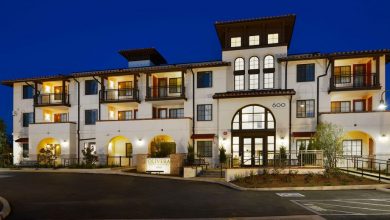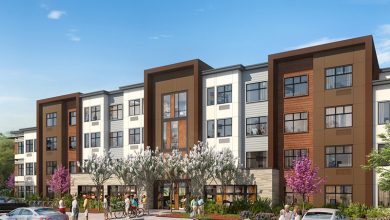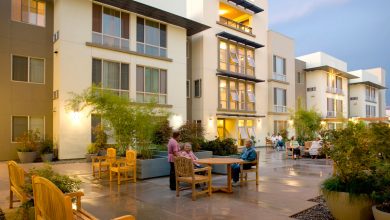senior living
Why Live in a 55+ Apartment vs. an All-Ages Apartment?
If you are reaching retirement age and trying to downsize your home, you may consider an apartment that won’t only fit your needs but your budget too.
What are the qualifications for taxpayers? Every senior apartment community has different policies and attributes, but we will answer these questions generally below.
While both a”senior” apartment and a”routine” apartment might have many amenities you desire, a senior apartment has more advantages and features that appeal to people your age. And, of course, a lot of your neighbors are going to be around your age.
Senior apartments are age-restricted to individuals typically 55 years old and older. Some can be limited to 62 years old and older. [Read about how those age limitations work.]
Even though there are luxury senior apartments with high price tags, most senior apartments are at market prices or below. Some others are specifically deemed low-income or inexpensive .
Senior apartments are constructed for elderly adults and extend senior-friendly conveniences and comforts . They often provide one- and – two-bedroom options and, sometimes, studios. Three-bedroom options are not as frequently accessible 55+ and 62+ apartments communities, but they do exist.
Senior apartments frequently are located close to the bus or public transport lines and near medical facilities. Some provide transportation services.
While their attributes differ between places, 55+ apartment communities often include or highlight the following:
- Fitness facilities
- swimming pools
- Walking trails
- Walk-in and lighted closets
- Step-in showers
- In-unit washers and dryers or neighborhood laundry facilities
- Elevators
- Emergency telephone systems
- Gated or controlled access
- Computer rooms and libraries
- Social places and game rooms
- Arts and crafts rooms
- Planned actions
- Salons and barber shops
Notice, however, that senior apartments are not exactly like independent living communities, even though they have many common features and conveniences. The biggest differences are that independent living communities generally include housekeeping and meals within your lease.
Senior apartments provide many advantages over all-ages apartments. The most important advantage is that you’ll live mostly with other people in your age range. To qualify as 55+ home as a way to prohibit children under 18, an apartment complex has to limit at least 80 percent of its units for families with at least one individual over age 55.
So, if you reside in a senior apartment, you won’t need to be concerned about young kids running around, and you should not need to manage young adults throwing loud parties. (Do not worry. Your grandchildren will still be able to come see. The apartment complex, however, might have a rule how long they could remain )
Other Advantages of senior apartments include:
- Planned actions : Senior apartments frequently have daily, weekly, and monthly scheduled activities for residents. These let you meet and spend some time with your neighbors.
- Safety: Many senior apartments have gone above and beyond by adding additional security measures such as cameras and emergency alarm systems. Some also have security-patrolled grounds as well as security guards posted at entryways.
The cost to lease a senior apartment fluctuates.
- Cheap : According to the local cost of living, tenants in those low-income senior apartments pay about 30 percent of their income for rent and utilities.
- Market speed : These senior apartments are offered at competitive prices, generally at or slightly below the expense of local all-age apartments.
- Luxurious : These high-end senior apartments can occasionally be applied as a second residence and are often located close to cultural pursuits.
In terms of qualifications, you typically have to be at least 55 years old, as mentioned above.




